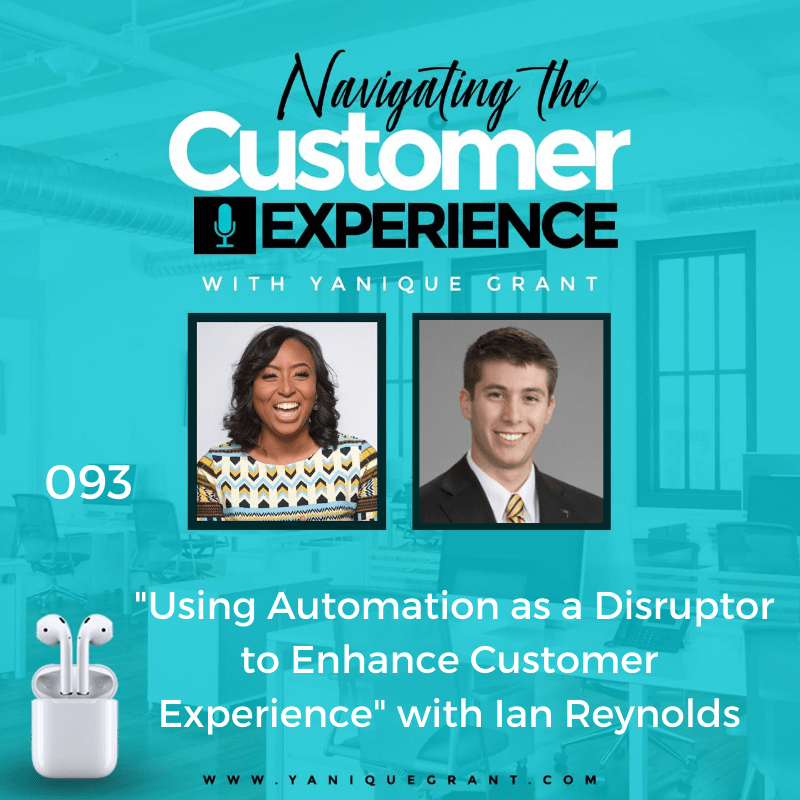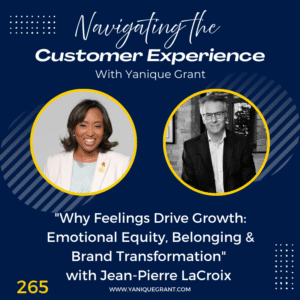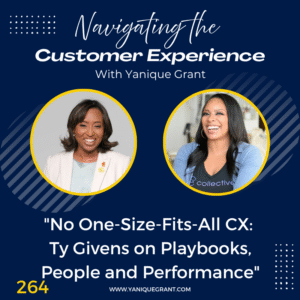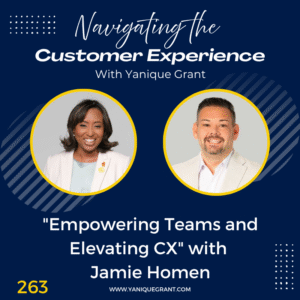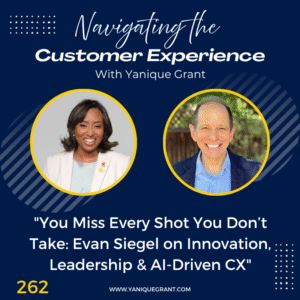Ian Reynolds is a Partner and Chief Solutions Architect at Zibtek, a software development firm focused on helping businesses of all sizes in the United States solve their core problems with software. They empower entrepreneurs, growth companies, enterprises and visionary firms to achieve greater profitability and efficiency, valuation and ultimate success by building the right tools through custom software.
Ian has spent the better part of his career in consulting and has served in diverse industries as Finance, Oil and Gas, Retail Power, Field Services, Midstream Energy, Healthcare, Pharmaceuticals, Transactional Finance, Mergers and Acquisitions, Restructuring, e-commerce, Retail and software development.
Questions
- Could you share with us a little bit about your journey, which, by the looks of your bio, has been quite an extreme journey? You pretty much have dipped into all industries from private to public sector. So share with us a bit about your journey and how it is that you got to where you are today, being the Chief Solutions Architect and Partner at Zibtek.
- Can you tell us a little bit about what Zibtek offers? What problems is Zibtek solving for their customers?
- What are some things that we could do to make the channels easier for the customers, less effort for them to exert, less friction?
- Could you share with us maybe what you think the future of automation looks like for a business?
- Can you share with us how you think technology has disrupted the business industry and how it will continue to do so?
- Can you share with us how do you stay motivated everyday?
- Can you share with us what’s the one online resource, tool, website or app that you absolutely can’t live without in your business?
- Can you share with us one or two books that have had the biggest impact on you, either a book that you’ve read recently or a book that maybe you read a very long time ago, but it still has had a very big impact on you?
- Can share with us what is one thing that’s going on in your life that you’re really excited about, either something that you’re working on to develop yourself or your people?
- Where can they find you online?
- Could you share with us a quote or saying that during times of adversity or challenge, you tend to revert to this quote or saying, because it helps to refocus you and just help you to be channeled back on what it is that you’re working on?
Highlights
Ian’s Journey
Ian shared that he has had the opportunity to see a lot of industries, and he thinks part of that started very early on. He was at a number of startups right out of college; he has launched 8 different products to market, saw the gambit and then did the MBA route, then jumped into consulting. So, right after the MBA, immediately sort of wanted to go into something that would let him see a lot of industries, a lot of verticals.
And in consulting, he had the opportunity to do that both on the I.T. side and on the finance side. So, really, just one option, he sort of expand his horizons, these sort of things. Ultimately wanted to get back to doing his own thing and found a business Zibtek and acquired 50% of it and that’s 3 years now.
Ian shared that they started as a product company 15 years ago and ultimately grew to the point where they wanted to sell the business. And then after 5 years of growing that product, sold it and then for the last 10 years, they have been providing services to the marketplace for folks who maybe don’t have an engineering team in-house or don’t have the engineering competency in-house, but need expertise to build out software or build out a solution that’s either custom fit for their business or adapt the same existing technology for their business. That’s primarily what they do.
Using Software and Technology to Enhance CX
Me: Could you give me an example of something that you’ve done to solve your customers’ challenges? Software that maybe you’ve created that’s solving that issue?
Ian shared that they have a client that is in the healthcare space and they are running around doing prospective studies for people who have had sort of strong medical procedures and they needed a way to capture data that wasn’t menial. So, before they’re using clipboards and paper and using telephones and dialing out and doing all that stuff manually with a large team of people to get that perspective data. Zibtek built a solution that automates all of the follow ups, keeps it the data hipper compliant.
And then also helps them basically have the patient groups be blocked in effectively, statistically randomized ways. And it did a couple of things. And this is how it ties back to the sort of the customer experience. By automating sort of the manual process and then also removing that human element. It actually made it so that the patients who had just gone through these procedures and had opted into these studies were more likely to respond because it was on a medium, on their phone or computer that was much friendlier to their time. Much more intuitive to interact with and can be done in maybe 5 minutes.
Me: So, it’s almost like you created like a specialized CRM for them that was really built to fit their business model.
Ian stated that in a certain sense, yes, it did all the communication to manage those individuals. It managed the follow ups and responses. But then it had a statistical engine behind it that allowed them to make sure that these patients sort of came through and randomized blocks.
Me: So, a big part of software development in a business can definitely impact the quality of the customer experience. We are now in a space globally where because of this pandemic, a lot of us have been forced to shift how it is that we’re looking at the different channels by which we serve our customers. And so it’s important to recognize that if it is that we are doing these things, what are some things that we could do to make the channels easier for the customers, less effort for them to exert, less friction.
What are maybe two to three top things as an engineer yourself, you’re a solutions architect. So you are able to look at the big picture and maybe give us some main things that companies need to consider when they’re designing this digitized strategy for their business. A lot of them may have been in the digital space, but probably they were not giving it as much priority as they would know because of the fact that their customers have shifted their behaviour and they’re interfacing more with those platforms than to face-to-face ones.
Ian shared that he thinks “the first and most important thing is take the customer’s problems to the engineers as opposed to having a frontline person who is maybe just kind of filtering through that customer feedback to then give it to the engineers. Engineers are by nature, people who want to build tools to solve problems and by having a direct pipeline of those, let’s say, customer complaints, customer problems, customer issues, going to the engineers as opposed to maybe filtered by a couple layers, you’re going to get results much more quickly.”
Ian Reynolds
You’re going to get your results and ultimately going to solve those problems and probably much more intuitive ways. And you can present those which suits the client.
“The second thing is figure out where you can as a business; automate routine simple tasks for the user and then figure out how at the same time of automating that task, “I can provide better customer service or better customer experiences in serving that client.” Sometimes that’s just through an interface but other times it is making somebody available to pick up the phone and talk with you, walk you through something. Just be available really quickly or provide a quick response to a customer query. So that’s the second piece.”
Ian Reynolds
The third item that they would recommend is intentionally innovate. They don’t think a lot of companies are going to fall behind because they’re not spending sort of like the 3M rule of anywhere from 5%-10% of profits intentionally to sort of disrupt their own business and produce a solution that’s ultimately better.
Technology
Technology is moving in a direction where its growth is accelerating, innovation is accelerating, and it’s accelerating past any single company’s ability to basically keep pace with those changes. So, an engineer that comes into their organization probably about 4 years, they’re going to have to retool a little bit because the technology is changing so quickly.
So, the guys that are coming out right out of college, very valuable because they come with sort of these new skills ingrained. Now they are teaching them, they’re training and they’re doing about six months of training. But really, if these guys are not retooling it about 6 years, they become kind of deadweight to certain extent.
Me: Almost like they’re obsolete. They’re no longer relevant because the technology has far superseded what existed 4 or 5 years ago.
Ian shared that he thinks automation is going to sort of go into that second category of what he described previously, where companies are going to try to as much as possible make it so that you have the equivalent of one click checkout for an experience or for a result.
And it’s going to not necessarily remove jobs but he thinks it’s going to make certain jobs more efficient. So, if you look at the guys at OnCourse Sales Automation on a mission, they have a bunch of tools combined in one that allows sales teams to be extremely efficient with their time. But it’s not that it’s eliminating sales jobs, it’s actually making them more competitive and making it so that the sales personnel are much more oriented towards quality.
And he thinks that you’re going to see that be true across pretty much every spectrum. Where you’re going to get automation, first you’re going to have a flight to quality second. So, if he can remove the tedious tasks, then he needs to focus on quality and for the companies that don’t focus on quality and don’t focus on customer service….customer experience, then they’re going to sort of fall behind.
Ian shared that we’re seeing a trend and still the world is just kind of coming online broadly speaking. You have a trend where folks are moving to these online tools to solve problems. You used to go to the store and buy off-the-shelf software, put it in a CD drive, his computer doesn’t have a CD drive anymore and do this that way.
And so, there’s still a lot of very prominent, very powerful technologies that have not made their way to the cloud. There are companies in Salt Lake that they’re talking to that are still on green screens, basically, where a lot of their stuff isn’t networked to manage inventory, manage supplies, track quality, track prices, et cetera, or how long things have been in the warehouse. And so there’s still and there’s going to be for a long time a continued shift towards cloud first, browser based technologies that are going to facilitate really kind of things that we already did. But in a way that gives us much more data, much more accessibility and makes organizations much more efficient.
How Ian Stays Motivated Daily
When asked about how he stays motivated, Ian shared that he thinks it’s more of a process of sort of building habits. So, his day to day is very, very different, every single day is different as they’re solving different problems for clients. But his mornings are pretty routine, his evenings are pretty routine. At least they try to be. And then that sort of natural motivation is that he has a growing family and he wants to make sure that they’re happy and taken care of.
And then he’s asking himself regularly, “Am I doing something that I find interesting and fulfilling?” And then he tries to sell himself the first hour of the day to focus on those things or the last hour or the day to focus on those things. And as long as he’s moving towards that direction, he’s very, very satisfied.
Online Tool that Ian Can’t Live Without
When asked about on online tool that he cannot live without in his business, Ian shared that www.tryoncourse.com is just one of those sort of sales automation tools he has been talking about. And they started using it and they think it’s pretty exceptional. It basically is, in their view, sort of the future of CRM.
It’s all of these tools, dialler SMS, what have you sort of rolled into one. And it’s going to give them and it gives their sales team crazy amount of visibility that they didn’t have previously with tools like Salesforce. They were using a phone dialler and they were also using MailChimp for drippy campaigns.
It’s got all that stuff built in and they’re just kind of adding more features to it all the time. And they’ve pretty radically simplified what they’re executing in the sales process by moving to one of these sales automation platforms. And basically, they don’t really know what they would do without it because everybody’s sort of refers to it for the data. Everybody sort of refers to it for activity. So, it’s pretty important.
Me: That’s your go to. It’s funny you mention that because our episode that we released today for the podcast was with their Chief Customer Experience Officer or Chief Sales Officer, Gessie Schechinger from OnCourse sales platform. So, they’re really disrupting the whole sales initiatives for businesses in terms of, as you said, putting everything in one place. So, I think it’s really awesome that you mentioned that that’s your online resource that you definitely can’t live without in your business.
Books that Have Had the Greatest Impact on Ian
Ian shared that the first book that had a big impact on him was Adam Smith’s The Wealth of Nations from 1776. Just reading that, the man only wrote two books. He wrote that book and then he wrote basically, sort of a moral treatise on The Wealth of Nations was sort of the prelude to The Wealth of Nations. Both of those books are exceptional. But really, Wealth of Nations is absolutely phenomenal and important to understanding really basic economics.
The second piece is and he thinks that while the books put out actually not books, but letters put out by Warren Buffett are in many respects. So, he put out a book, one of the meetings that had a collection of all 50 letters. He thinks that those books are under read or that those letters are under read and are really instructive, not only sort of for financial matters, for managing a business, but also in managing. There are great lessons in managing and he has continually gone back to those resources, both of those to reread things, take notes, put that online, share his ideas with other people, get their feedback. And so those have been the two most resources for him.
Ian Shared Something He’s Working on and Excited About
When asked about something that he’s working on to develop himself or his people, Ian shared that he thinks internally they have had a pretty wonderful shift in defining within the organization how they want to continually improve their project management processes.
And going back to the very beginning of the conversation, where you sort of taking that customer feedback, they’re being very aggressive, even as a service organization, to take customer feedback and then incorporate that into their engineering process.
They follow sort of a can ban trunk based development type methodology. And by taking the sort of consumer feedback or customer feedback or client feedback and rolling that into the process, they’ve really been able to deliver some tremendous results.
Now, they’re still improving that, they’re still making that better. They’re still making that well, let’s call it user friendly. And there’s a lot of runway for them to continue to improve and he thinks that’s the most exciting near-term project they’re working on.
Me: So could you share with us if our listeners listen to this episode or better yet, when they listen to this episode and they say to themselves, I’d like to learn a little bit more about Zibtek. I’d also probably like to connect with Ian because he could probably offer some good insight. I could follow him and be a part of his community and what he’s doing so that I can add better value to my organization and what I am doing.
Where You Can Find Ian Online
- Ian shared listeners can find him at –
Ian Reynolds – hello@zibtek.com
They have a bunch of actually free resources up there. And in their blog, they’re constantly sort of posting their findings for things, comparing technologies, et cetera. Where they’re posting their development methodology and their development standards in a few months. So check it out and they also have a bunch of presentations that are super valuable, super high value and worth checking out.
Quote or Saying that Ian Uses During Times of Adversity
When asked about a quote or saying that helps him in times of adversity, Ian shared that it’s maybe not so much a direct quote, but it really is more so that the idea that feeling sorry for yourself or feeling down on yourself isn’t helpful.
It’s not a helpful characteristic. So, recognize that thought and then figure out what you should be doing and then go do that thing. So, it’s kind of like grandma’s rule, grandma’s rule is you have to eat your vegetables before you can eat your dessert. And so, “Do the uncomfortable stuff first and then go to the fun stuff.”
Please connect with us on Twitter @navigatingcx and also join our Private Facebook Community – Navigating the Customer Experience and listen to our FB Lives weekly with a new guest
Grab the Freebie on Our Website – TOP 10 Online Business Resources for Small Business Owners
Links
The ABC’s of a Fantastic Customer Experience
Do you want to pivot your online customer experience and build loyalty – get a copy of “The ABC’s of a Fantastic Customer Experience.”
The ABC’s of a Fantastic Customer Experience provides 26 easy to follow steps and techniques that helps your business to achieve success and build brand loyalty.
This Guide to Limitless, Happy and Loyal Customers will help you to strengthen your service delivery, enhance your knowledge and appreciation of the customer experience and provide tips and practical strategies that you can start implementing immediately!
This book will develop your customer service skills and sharpen your attention to detail when serving others.
Master your customer experience and develop those knock your socks off techniques that will lead to lifetime customers. Your customers will only want to work with your business and it will be your brand differentiator. It will lead to recruiters to seek you out by providing practical examples on how to deliver a winning customer service experience!

